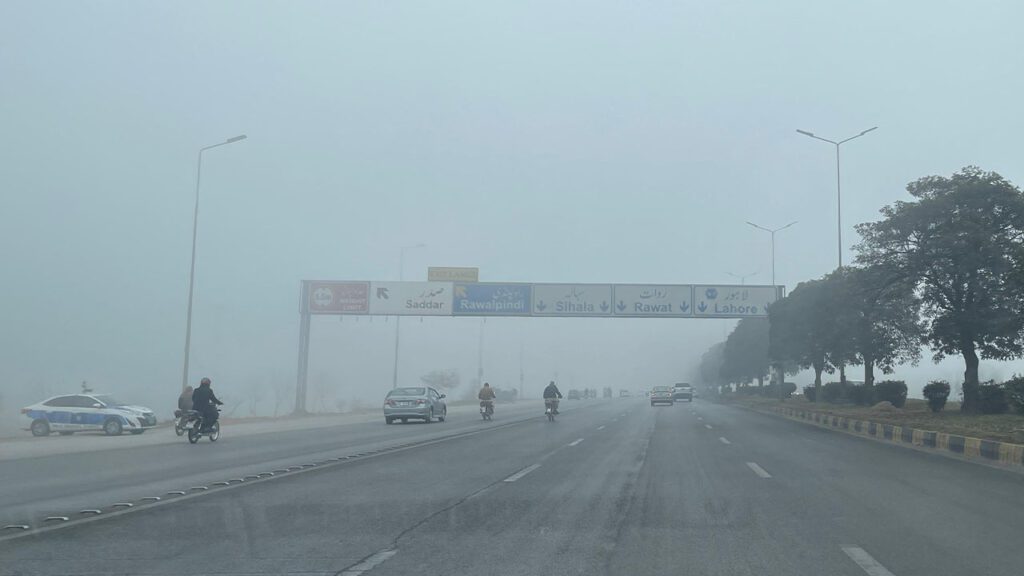- Web
- Today
Pakistan’s AQI ranks second worst globally
-

- Web Desk
- Mar 19, 2024

WEB DESK: In a troubling development, Pakistan grapples with a concerning surge in pollution indicators, solidifying its position among the countries with the worst air quality globally.
This ongoing issue has been a cause for concern for both authorities and citizens alike, as the nation battles against hazardous airborne particles permeating its atmosphere.
Recent data from IQAir, a Swiss air quality technology company, paints a bleak picture, indicating that Pakistan maintained its unenviable position as one of the nations with the second worst air quality in 2023.
The average PM2.5 concentration, a key measure of air pollution, soared to 73.7 micrograms per cubic meter (μg/m³). To put this into perspective, the World Health Organization (WHO) recommends that PM2.5 levels should not exceed 5μg/m³ to ensure healthy air quality standards.
In the capital city of Islamabad, PM2.5 levels surged to unprecedented heights, registering a record high of 42.4μg/m³, marking the city’s most polluted air quality in its seven-year history.
Meanwhile, Lahore, previously crowned as the world’s most polluted city in March 2023, witnessed a staggering increase in its PM2.5 levels, surpassing 99.5µg/m³.
The city’s monthly average of PM2.5 level peaked at a concerning 251µg/m³ in November last year, prompting judicial intervention that compelled the government to declare a “smog emergency” in the provincial capital.
The 2023 report by IQAir sheds light on the severity of the situation, revealing that every city in Pakistan included in the study recorded PM2.5 concentrations exceeding 30µg/m³, six times higher than the WHO’s recommended annual guideline.
The surge in air pollution levels can be attributed to various contributing factors, including crop residue burning, deforestation, industrial emissions, vehicular exhaust, and emissions from brick kilns.
Consequently, the government implemented lockdown measures in multiple cities across Punjab in response to thick smog engulfing several districts.
In a bid to combat the hazardous air quality, December 2023 witnessed a historic moment as Lahore experienced its first-ever artificial rain.
Planes equipped with cloud-seeding technology were deployed over ten areas in the city, aiming to mitigate the dangerous levels of air pollution.
Despite these efforts, Pakistan’s battle against air pollution remains an uphill struggle. The nation’s average PM2.5 levels, while surpassed only by Bangladesh at 79.9μg/m³, underscore the magnitude of the crisis.
India ranks third with PM2.5 levels recorded at 54.4μg/m³, further emphasizing the regional severity of air pollution.




